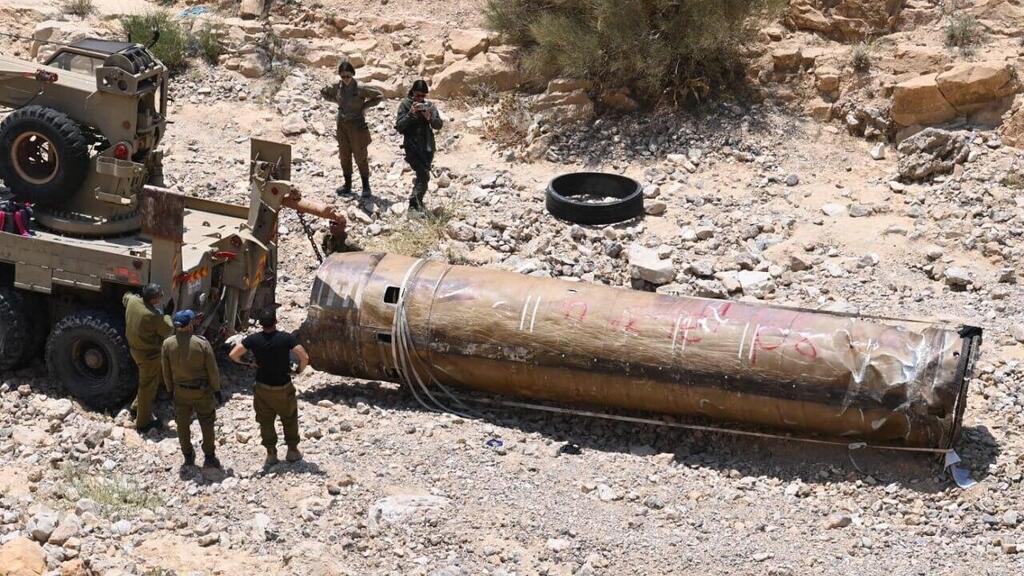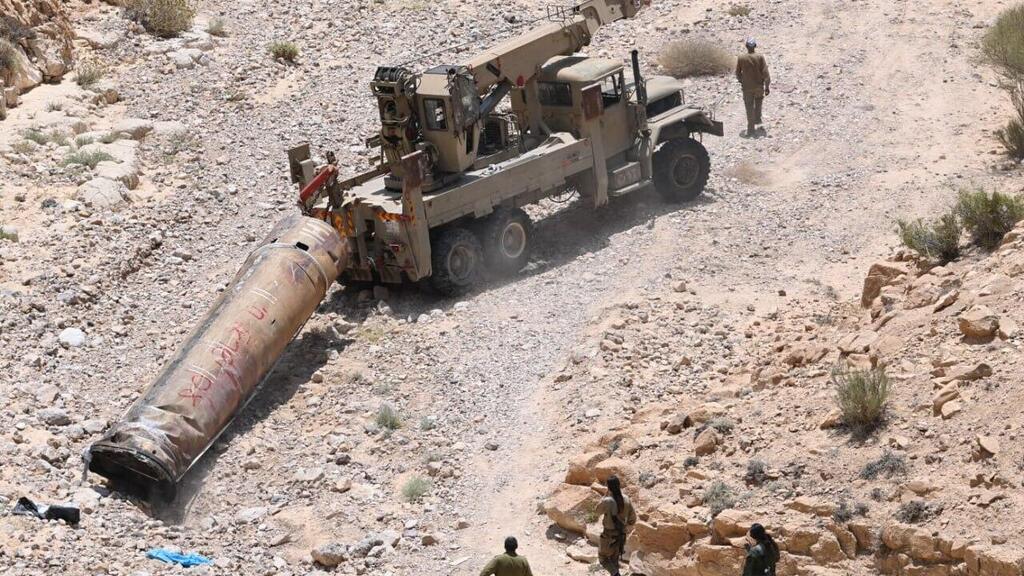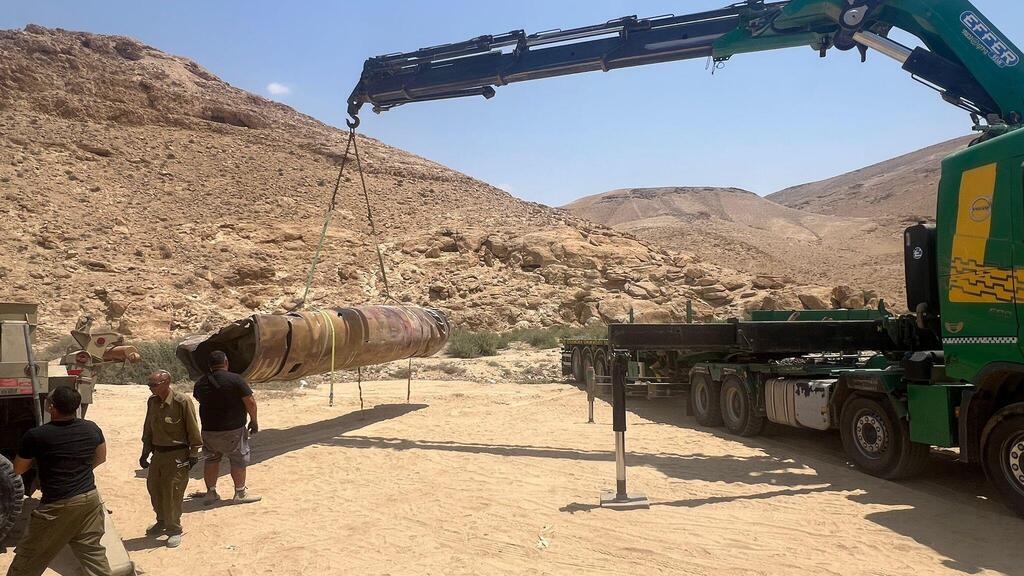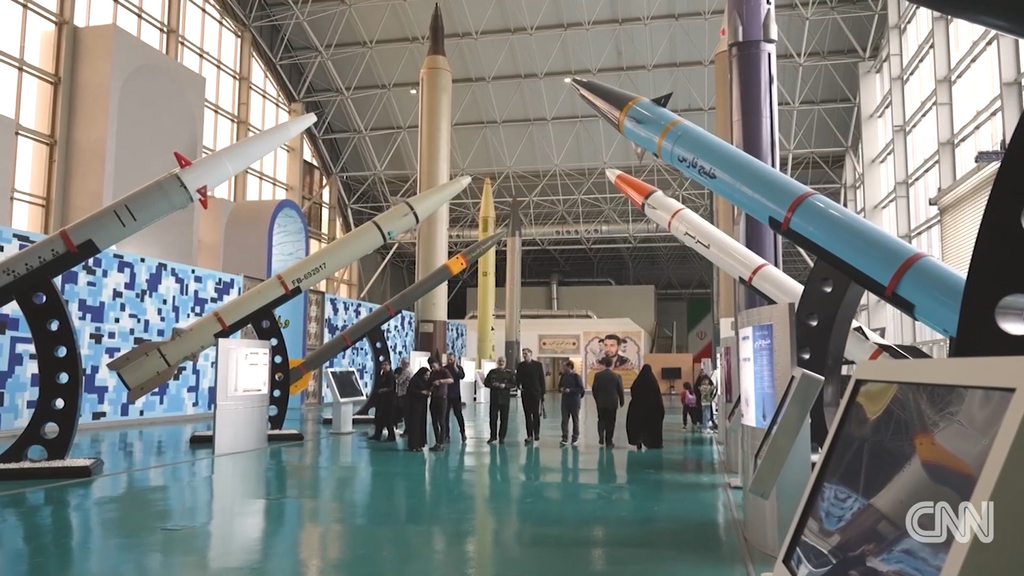The IDF reported Thursday that it retrieved remnants of a ground-to-ground missile fired during the recent Iranian attack on Israel.
The remnants were found near Nahal Ye'elim, close to Arad. The IDF stated that the missile debris contained hazardous materials and was evacuated using a crane by IDF forces, led by the Southern District of the Home Front Command, along with firefighting and rescue units.
The IDF emphasized that hikers must follow the Home Front Command's instructions when encountering suspicious objects. They clarified that remnants and unexploded ordnance could be dangerous, advising people to stay away from them and report their discovery to the police's hotline.
Meanwhile, American news network CNN received a special glimpse of the ballistic missiles that the Islamic Republic used against Israel on April 14 during a visit to an exhibition by the Iranian Revolutionary Guards Corps in Tehran. "You must ask the Israelis," Islamic Revolutionary Guard Brigadier General Ali Belali said with a smirk, when asked how many ballistic missiles Iran had fired at Israel.
Belali presented the missiles and UAVs used in Iran's first-ever attack on Israel, launched from Iranian soil. "It was a means of punishment," Belali said as he showcased the missiles at the exhibition.
At the exhibition by the Islamic Revolutionary Guard Corps Aerospace Force in western Tehran, dozens of long-range and medium-range ballistic missiles were displayed alongside cruise missiles and UAVs. The exhibition, as reported, aimed to showcase Iran's development and progress in its missile and UAV programs. It was the first time that U.S. media were allowed into such an exhibition.
“Today, our drones and missiles have become an important factor of strength and the execution of power in the world,” Belali, himself a former missile commander during the eight-year Iran-Iraq war that ended in 1988, told CNN. He says Iran’s massive drone and missile barrage against Israel was a "major success."
“NATO, The United States and Arab countries of the region wanted to create barriers for our drones, missiles and cruise missiles, but they failed,” Belali says. “The world was not able to stop us.”






